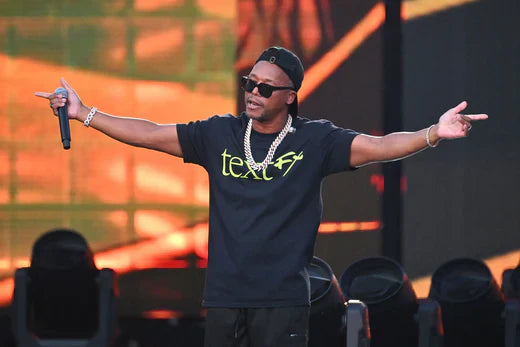
Lupe Fiasco: The Rap Professor Hip-Hop Needs Right Now
In a world where hip-hop often finds itself misunderstood or underappreciated in academic and cultural circles, Lupe Fiasco is breaking barriers and reshaping narratives. The Grammy-winning rapper, known for his intricate lyricism and socially conscious storytelling, has stepped into yet another groundbreaking role: a visiting professor at Johns Hopkins University's prestigious Peabody Institute. And honestly, this is exactly the kind of energy hip-hop needs right now.
Hip-Hop in Academia: A Long Time Coming
Let’s face it—hip-hop has long been deserving of a seat at the academic table. It’s more than beats and rhymes; it’s a powerful art form rooted in storytelling, innovation, and cultural expression. Lupe Fiasco’s new role at Peabody is a major win for the genre. As a professor, he’s set to teach students about the art and science of rap, merging his firsthand experience with the intellectual depth hip-hop deserves to be recognized for.
This isn’t Lupe’s first foray into academia, either. From 2020 to 2023, he served as a visiting scholar at none other than MIT, co-teaching a course called "Rap Theory and Practice." Yes, MIT. Not only did he explore the structure and function of rap, but he also collaborated on creating a computer rapper capable of improvising verses. That’s right—Lupe is out here blending hip-hop with cutting-edge technology.
Why This Matters
Lupe Fiasco’s transition from studio to classroom is a reflection of hip-hop’s evolution. For decades, the genre has been criticized for everything from its lyrics to its cultural impact, while its deeper layers often go overlooked. Having someone like Lupe—a lyricist’s lyricist with accolades to back it up—legitimize rap as an academic discipline is a major step forward.
Hip-hop has always been a form of education, from the streets to the global stage. It’s taught us about resilience, systemic issues, and the complexity of human experience. By bringing rap into institutions like Johns Hopkins and MIT, Lupe is ensuring that hip-hop gets the respect it deserves as both an art form and a scholarly pursuit.
Highlighting the Wins
This appointment is also a reminder that we, as a hip-hop community, need to do a better job of celebrating moments like this. Lupe’s work extends beyond music charts—he’s also the co-founder of the Society of Spoken Art (SOSA), an educational guild for rappers focused on the science of linguistics and semiotics. Add to that his collaboration with Google on TextFX, an AI tool designed to help creators explore the creative potential of language, which earned him three Webby Awards.
These aren’t just accolades; they’re proof of how versatile and impactful hip-hop can be. We’ve seen countless examples of artists using their platforms for change, but when those contributions intersect with academia and technology, they elevate the genre to a whole new level.
Why We Need More Lupe Fiascos
Hip-hop needs more pioneers like Lupe Fiasco—artists who aren’t afraid to step into new spaces and challenge the status quo. His journey from crafting classic albums like Food & Liquor to teaching the next generation about rap’s intricacies is inspiring. It shows that hip-hop isn’t just entertainment; it’s a culture, a discipline, and, yes, a science.
We should be amplifying these moments more often, making them front-page news, and using them as a blueprint for the future. Hip-hop is already global, but opportunities like these ensure it continues to grow in depth, complexity, and respect.
So here’s to Lupe Fiasco, the rap professor we didn’t know we needed—but absolutely do. Let’s hope this is just the beginning of hip-hop’s takeover in the academic world, because if one thing’s clear, it’s that the culture has a lot to teach—and a lot of room to grow.
